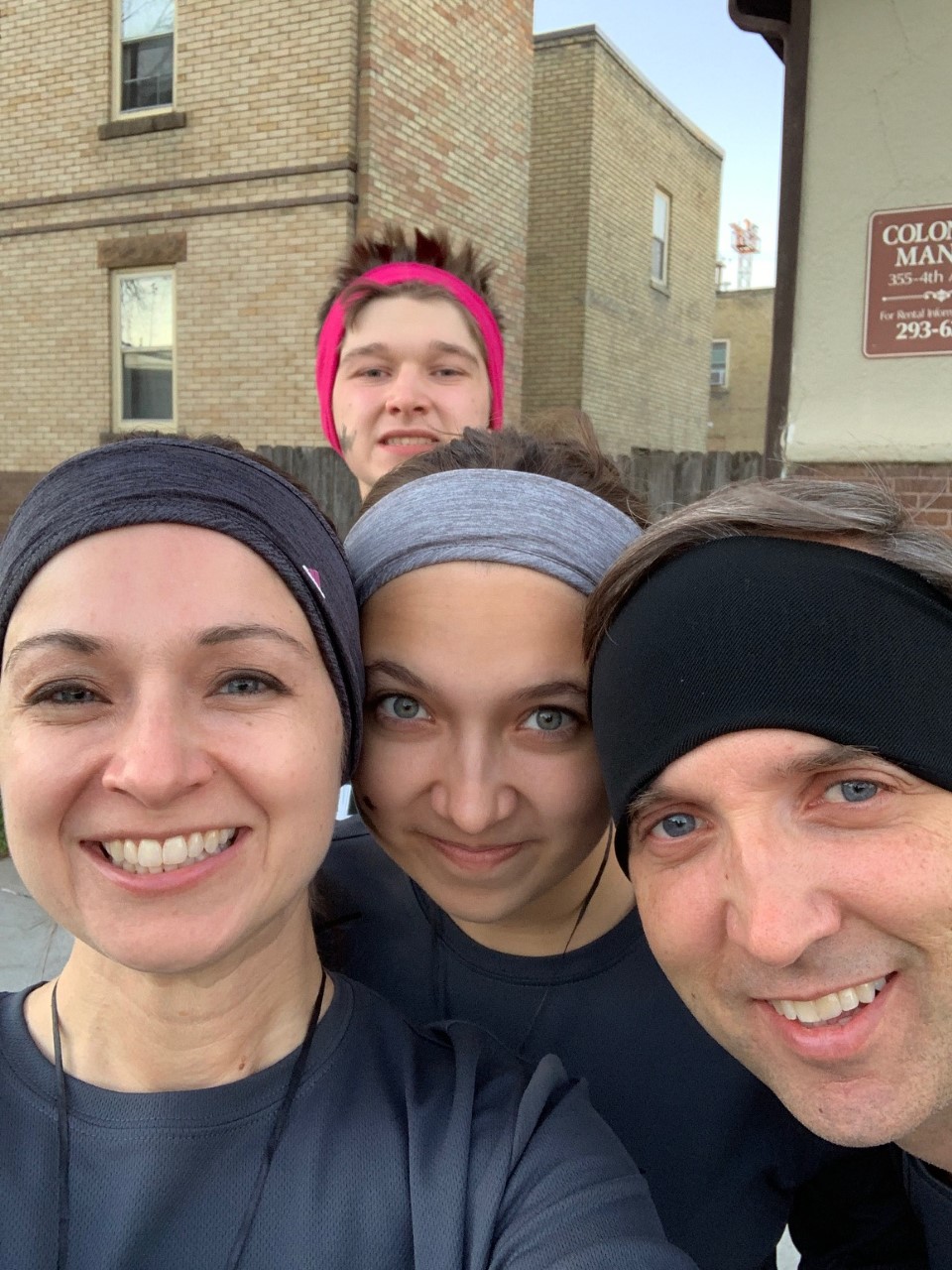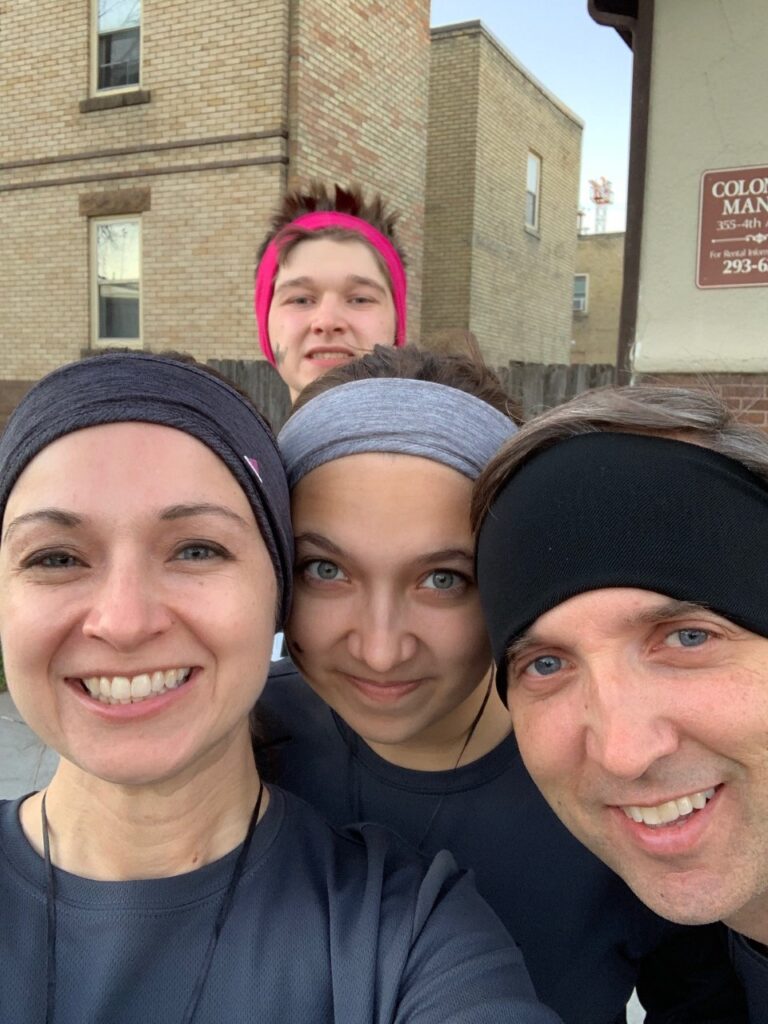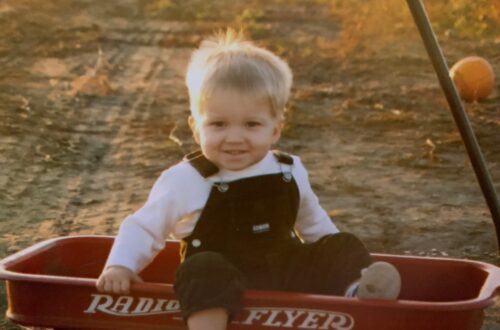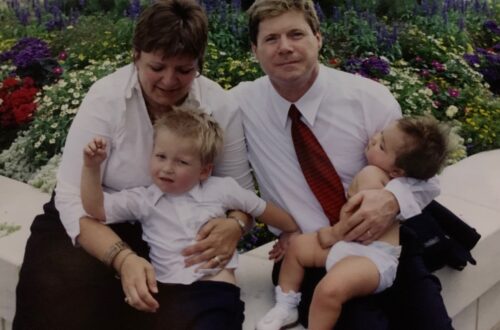
The Post High School IEP
A few weeks ago we sat down with J’s new team to discuss his IEP. I had thought long and hard for weeks what we wanted J’s new goals to look like, but I couldn’t come up with anything. For the last 12 years J’s IEP has been some iteration of getting J to stay and focus in a classroom or how to accommodate class and homework assignments.
But now J’s classroom no longer looks like an academic one. And to be honest, I’m still learning myself what his new school situation looks like, and to be honest, I’m kind of IEPed out. I’m all out of ideas.
We were two days away from the meeting and I finally sat down and asked myself “If J’s education isn’t academic anymore, then what is it?” That’s when I finally found my direction again.
Steve and I want J to be the most independent he can be. We want him to have a job where he feels fulfilled. We want him to be as independent as he can be in his home life. That’s what the goals need to center on.
Those goals of independence at work and home are still pretty big and abstract. I don’t even know how I got “let’s look at executive functioning” in my head but somehow I did. I know nothing, really about executive functioning–just that it’s brain skills for independence. So I Googled it and this chart got everything going.

I took a look at each of the 8 sections and made assessments on how J functions in each. Emotional control, impulse control, and self-monitoring are some of his stronger skills. They are nowhere near high mastery, but they exist, he’s aware of them, and he works darn hard at them, even if he fails from time to time. Those skills have come from the last 12 years of IEP goals and I’m really, really proud of the hard work he’s done and all of his teachers’ support to get him where he is in those areas. The others? Organization, task initiation, planning and prioritizing, working memory, flexible thinking…those are practically non-existent. Because J relied so much on a one-on-one para for his entire public school career in order to stay in a mainstream classroom with a lot of accommodations, he never developed any of those skills. And that’s okay. We had bigger fish to fry. Like emotional regulation. And math.

There’s still a lot of skills to work on (or even introduce him to), so I decided we would try working on three for the moment. Thinking of job and home life independence, I chose flexible thinking, planning and prioritizing, and task initiation. I scoured the teacherspayteachers website for more ideas and this is what I came up with:
- Flexible Thinking. I see this akin to problem solving. Like “I can’t find my key and the door is locked” or “I put my pizza rolls on an un-rimmed cookie sheet and two rolled off the tray in the 450F oven.” We need to get this kid to be able to think of multiple solutions to his problem and then decide what is the best thing to do. That’s where flexible thinking comes in. If I can’t do the best option, what are my other options. So let’s start with getting him to practice thinking up 3 answers to every problem. Not just crisis situations like lost keys or burning pizza rolls. Situations like “there are no clean spoons in the drawer” I can 1) find a dirty one in the dishwasher and wash it by hand 2) use a plastic spoon or 3) use a fork instead.
- Planning and Prioritizing. This is one is a lot to tackle. There are so many parts to planning ahead and making decisions on what the most important tasks are. So we’re starting basic. REALLY BASIC. Like grasping a concept of time kind of basic. Don’t get me wrong. The kid knows time. He knows the bell schedule, he remembers the date and time and year of the day the cafeteria ladies burned the pizza in the oven and caused an impromptu fire drill. He knows how to tell time. He just doesn’t have a concept of how long tasks take. So that’s where we’re going to start. “How many minutes does it take to unload the dishwasher?” “To get dressed?” “To drive to Hornbachers?” Now at home we’re we’ll write the start time for a task and then the end time for a task. No countdown timers (because countdown timers cause A LOT of anxiety). We are just looking observing and recording these things with curiosity. And so now, J knows it takes 5 minutes to unload the dishwasher, not 15 min (because you get distracted and want to go find your ipod to listen to music). So concept of time and tasks. That’s where we’re starting.
- Task Initiation. I was looking at a social story on the teachers pay teachers website and had one of the biggest epiphanies (at least when it comes to J). Here’s a summarized version of the social story:
1) Teacher gives directions to do task independently
2) Student returns to desk or workplace to begin the assignment
3) Student looks over and tries to understand what is being asked
4) If Student has questions, she can ask appropriately
5) Student can then complete the task and avoid distractions
J gets lost on step 3. And if he doesn’t understand the assignment, he doesn’t (currently) know how or what to ask. So here is where the next goal comes in (also from teacherspayteachers). J is going to use signal cards (or a chart) to point to or help remind him what to be communicating. For example:
1) I’m not sure where to begin
2) I forgot the directions
3) I can’t find my materials
4) I can’t decide on a topic
5) I need a break
6) I’m distracted
7) I’m doing fine
8) I need __________.
I have no doubt that using these signal cards consistently over a month or two, J will remember them and no longer need them. Right now, we just need to teach him the things he should be asking or communicating.
I sorta really love this little plan. It’s something that we can re-enforce really easily at home too. And having a grand plan of executive functioning (instead of academic benchmarks) is sort of really liberating and the focus J needs right now in life. Heck, I might brush up on my own executive functioning skills in the process 😉




